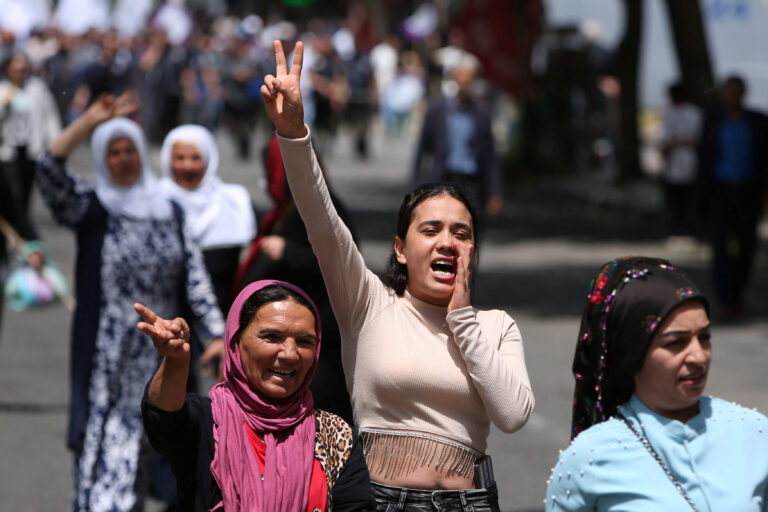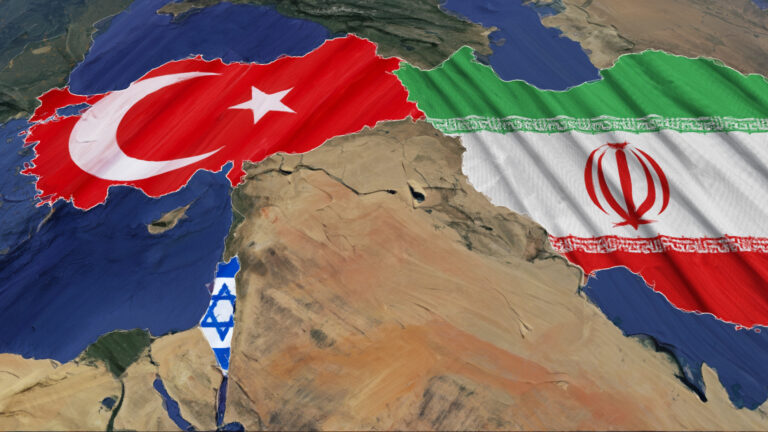by Leo Kendrick
Erdoğan Bayraktar, Turkey’s former minister of Environment and Urban Planning, came forward with an admission earlier this week stating that the allegations leveled against him in the 2013 ’17-25 December’ corruption scandal were in fact true.

Bayraktar resigned from his post as a result of the scandal, which also resulted in the resignation of three other senior government officials: Minister of European Union Egemen Bağış, Interior Minister Muammer Güler, and Minister of Ecomony Zafer Çağlayan. At the time of his resignation, Bayraktar also called for the resignation of then-Prime Minister Recep Tayyip Erdoğan, a statement he later apologized for.
The original corruption investigation and resulting scandal were alleged to have been politically motivated, carried out by Fethullah Gülen sympathizers at a time when Gülenists and Justice & Development Party (AKP), former allies, were becoming enemies. The original prosecutors for the case, loyal to the Gülen Movement, were alleged to have carried out the corruption investigation in an attempt to purge AKP loyalists in government. In a reversal of fortunes, the 2013 scandal inspired a counterattack by Erdoğan and the AKP, who instead purged or reassigned thousands of police and prosecutors suspected of being Gülen sympathizers. Many AKP sympathizers would later label the investigation and scandal as an attempted coup, bent on removing AKP officials and discrediting the party with corruption allegations. The head prosecutors in the case, Zekeriya Öz and Celal Kara, were both alleged Gülenists and fled Turkey in the prior to the coup attempt of 2016. Both remain at large abroad.
The far-reaching scandal, which involved officials from the state-owned Halk Bank, centered around a scheme to exploit a loophole in US sanctions against Iran. As part of the original investigation, Bayraktar’s son Oğuz Bayraktar was detained by police in his home. Accusations against the younger Bayraktar were related to an alleged crime ring and centered around his acceptance of bribes in exchange for construction permits. Hearing of his son’s detention in a taped phone call, the elder Bayraktar allegedly called two other senior ministry officials, warning that if they didn’t escape to ministry headquarters, they too would be detained by police imminently. In the taped conversations that led to Erdoğan Bayraktar‘s resignation, he is quoted saying “Police are coming to get you now, leave your house and go straight to the ministry.”
Bayraktar, who had previously maintained his innocence in spite of his resignation, admitted in an interview with Diken News last Sunday (29 August), that the allegations against him from 2013 were in fact true. In the interview, Bayraktar was quoted as saying: “Whatever was in my file was true. The tapes, the wire-tapping, and the phone calls were all true from A-to-Z.” Comparing himself to the three other ministers who also left their posts following the scandal, Bayraktar defended himself, saying that although he may have been guilty of misusing his powers, he did not engage in bribes or corruption, practices in which the others allegedly did. Saying that then-Prime Minister Erdoğan did him a great misdeed in forcing his resignation, Bayraktar expressed that he nonetheless looked up to the now-President as a “leader”.
In a statement on Twitter two days later on Tuesday (31 August), Bayraktar seemed to take a step back from his admissions, questioning the integrity of the tapes that led to his resignation. His tweet read: “Anyone who looks over the tapes in a neutral and unbiased fashion will see how corrupt they are and how cruelly they were prepared. Those who do politics as if the contents of those tapes are ‘full’ are cruel like those who prepared them.”

Regardless of the veracity of the original allegations or initial denial, Bayraktar’s apparent admission has brought the notorious scandal back to the surface at a time when allegations of corruption at the highest levels of government have been dominant themes in Turkey’s political discourse, especially with Sedat Peker’s disclosures this past spring. Following Bayraktar’s statement, main opposition leader and Republican People’s Party Chairman Kemal Kılıçdaroğlu characterized the former minister’s interview as an admission, saying “We will raise our voices in order for the truth to be revealed.” The ruling AKP, addressing insinuations of complicity, released a statement saying the party had supported a parliamentary motion into a corruption investigation following the 2013 revelations, and that the party was committed to fighting corruption. Referring to President Erdoğan, the statement said “Our president does not make concessions in his struggle against corruption.” The same statement also defended the neutrality of the courts, another lightning rod issue in recent years. Many in the opposition see Bayraktar’s admission as fresh evidence and potential grounds for the reopening of an investigation, one with the potential to implicate current members of government.
President Erdoğan was Prime Minister at the time the scandal broke nearly eight years ago, and the event has retrospectively been viewed as a watershed in the rift that ended up separating the AKP and the Gülenist movement. The Gülenist movement, led by US-based cleric Fetullah Gülen, would later be accused by Erdoğan and the AKP of plotting the failed July 2016 coup. At time of the 2013 scandal, Fetullah Gülen was openly critical of the government response, in particular the dismissal of hundreds of government employees and civil servants alleged to have been complicit in the scandal. Many viewed the dismissals as a chance to purge Gülen sympathizers, who then-Prime Minister Erdoğan accused of running a “parallel government”. The Turkish government currently classifies the Gülenist movement as a terrorist organization.
President Erdoğan has yet to make a statement on Bayraktar’s recent admission.
Medyascope'un haftalık e-bülteni
Andaç'a abone olun
Editörlerimizin derlediği öngörüler, analizler, Türkiye’yi ve dünyayı şekillendiren haberler, Medyascope’un e-bülteni Andaç‘la her çarşamba mail kutunuzda.














